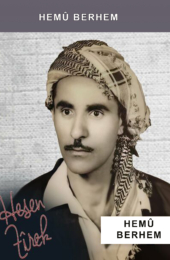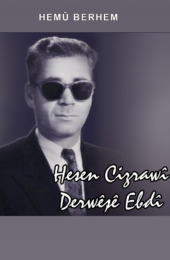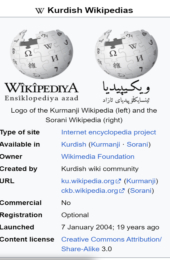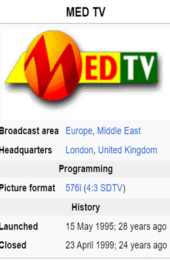Erdewan Zaxoyî
Erdewan Zaxoyî (Kurdish: ئەردەوان زاخۆیی) (July 1957– January 1986)[1] was a celebrated Kurdish songwriter-singer and Composer from Zakho.
Erdewan Zaxoyî was born in 1957 as Erdewan Elî in Zaxo ( Kurdistan, Iraq ). He was one of a total of six children and grew up in his hometown and spent his youth there as well. In 1978, he released his first recorded tape, singing on Kurdish political texts, even though it was banned at the time. He later secretly supported the Kurdish Peshmerga-soldiers with his songs and folk songs, such as with Peşmergekê çelengêm. His songs were mostly about justice and freedom. He also wrote songs about his hometown Zaxo and Kurdistan.
In 1982, he fled to the Kurdish region of Iran following persecution by Saddam Hussein's regime. He lived there until the end of 1985 and wrote more songs. The content of these was in addition to the love of home, his homesickness and the yearning for his family, especially his mother, to whom he also sent his entire recorded tapes.
In January 1986, he finally returned and was reportedly abducted in the same year at a concert for the Kurds living in Baghdad by agents of the Secret Service of Iraq and probably murdered. To this day he has not been found.
After his disappearance, a monument was erected for him in Zaxo. It is located near the historic Delal Bridge, which he often mentioned in his texts. In addition, in February 2006, a celebration in memory of him and Eyaz Zaxoyi, a well-known singer, aligned in Duhok. At the ceremony, Dahuk Governor Tamar Kuchar gave a speech on the lives and works of the two artists.
His wife and children live in Sweden today .
Director: Erdewan Zaxoyî
Hassan Zirek
Hassan Zirek (Kurdish: حەسەن زیرەک, romanized: Hesen Zîrek) 29 November 1921 – 29 July 1972[1]) was a celebrated Kurdish songwriter-singer from Bukan, known for his recordings of classical Kurdish folk songs. He was famous for his classical and sensual lyrics, and it is believed that he composed over thousand songs in his lifetime.[2]
Director: Hassan Zirek
Hesen Cizîrî
Hesen Ciziri: Kurdish Music Icon
- Hesen Ciziri, also known as Hesen Cizrawi, was a prominent figure in classic Kurdish music, born in 1917 in Cizre, Şırnak [6].
- He gained acclaim for his soulful compositions, exemplified in songs like "Ez Nexweşim" and "Ez Kevok im" [1][2].
- His discography, available on platforms like Deezer, includes albums and playlists showcasing his musical legacy [5].
- Ciziri's notable works include "Bilbilo" and "Nazê," contributing to the rich Kurdish musical heritage [4][8].
- Despite passing away in 1982, his influence persists, celebrated in playlists like "Hesen Ciziri (Hesen Cizrawi)" on platforms such as YouTube [7].
- Explore his timeless melodies, like "Suvarê dil ê min" and "Nîna," to appreciate the enduring impact of Hesen Ciziri's musical legacy [3][9].
Director: Hesen Cizîrî
Şakiro
Şakiro
Şakir Deniz also known as Şakiro (born in 1936 in Eleşkirt–1996, Izmir, Turkey), was a Kurdish Dengbêj singer. His songs were often recorded on cassettes and distributed illegally, when the Kurdish language faced limitations in cultural expression in Turkey. He is one of the most prominent figures for Dengbêj in recent times. His and the recordings of other Dengbêjs such as Karapete Xaco are considered a resource for the ones who also want to become Denbêj singers. He once met such an apprentice and foresaw that he will be seen as a Dengbej who sings in the Şakiro style.
The family of Şakiro, who were from the Zilan tribe, lived in the village of Qerqa near Mount Aragats in Armenia before fleeing to the village of Kela Topraqqalê in present-day Eleşkirt district of Turkey, due to the conflict between the Russian and Ottoman empires.
Şakiro was born officially in 1936 (however it is also possible that he was born in 1931) while he spent most of his youth in nearby Cemalverdî village where he was exposed to Dengbêj songs from an early age.
Director: Şakiro
Kurdish Wikipedia
Kurdish Wikipedia (Kurmanji Kurdish: Wîkîpediya kurdî, Sorani Kurdish: ویکیپیدیای کوردی) refers to two Wikipedia editions which are written in two forms of Kurdish language; Kurmanji and Sorani.
The original one was founded in January 2004. As of December 2023, the Kurmanji Wikipedia has 73,702 articles and Sorani Wikipedia has 52,794 articles.[1] There are also two other Wikipedia editions for Zazaki and Southern Kurdish with the latter still in the test phase.
History
The Kurdish Wikipedia established on January 7, 2004,[2] designed to contain articles in Kurmanji and Sorani at the same time. On August 12, 2009, Kurdish Wikipedia separated into two versions due to technical and linguistic issues. The old version (ku.) remained as Kurmanji Kurdish Wikipedia and a new version (ckb.) created for Sorani Kurdish Wikipedia.
See also
MED TV
MED TV was the first Kurdish satellite TV[1] with studios in London, England and Denderleeuw, Belgium. MED TV broadcast programs mainly in six languages, Kurdish (Sorani, Kurmanji, and Zaza dialects), English, Arabic, Assyrian and Turkish.
Programs and audience
MED TV Programmes were a varied mix from children's programs, music, documentaries and news broadcasts.[2] A program in which Kurdish books written in the three scripts of Arabic, Kyrillic and Latin were discussed, was moderated by a journalist of Özgür Gündem.[2] It broadcast to Europe, North Africa and the Middle East. Its primary audience was in the Middle East where it was seen by many as a refreshing source of information outside of state censorship. It also has a large audience amongst the Kurdish population scattered throughout Europe.[citation needed] In Turkey, it was forbidden to watch Med TV, people were arrested for having been caught watching its programs. The police would search for satellite dishs in Diyarbakır, which they'd confiscate.[2] Turkey saw MED TV as a part of the Kurdistan Workers' Party (PKK),[3] which it classifies as a terrorist organization. Nonetheless its shows were very popular amongst Kurds in Turkey.[4]
Organization
At its establishment in 1995, thirteen media workers employed at the Television. Most were amateurs, only one had an education in the field. The company expanded its activities significantly until in 1997, the television counted with 250 employees.[2] The TV had close ties with the newspaper Özgür Gündem, whose chief-editor Gurbetelli Ersöz was also MED TVs chief-editor for Turkish Kurdistan.[2]
Rûdaw
Rudaw Media Network (Kurdish: تۆڕی میدیاییی ڕووداو, romanized: Tora Medyayî ya Rûdaw), is a major media broadcaster in the Kurdistan Region, Iraq.[2][3][4]
Rudaw Media Network, headquartered in Erbil, the capital of Iraq's Kurdistan Region, operates as a global media powerhouse with correspondents strategically positioned across the Middle East, Europe, and the United States.
This multi-faceted media outlet delivers content in various languages, including English, Kurdish, Arabic, and Turkish.[5]
History
Rudaw Media Network originated as a weekly print newspaper distributed in the Kurdistan Region and Europe, the network initially garnered international attention through its European edition, catering to the burgeoning diaspora communities of that era. In a noteworthy commitment to environmental sustainability, Rudaw transitioned from print to a fully digital format, discontinuing its newspaper publication.
The network's diverse portfolio includes a weekly newspaper in the Sorani dialect, boasting a circulation of 3,000, a Kurmanji version circulated in Europe, a comprehensive website available in Kurdish, English, Arabic, and Turkish, and a satellite TV station. Rudaw Media Network is funded and supported by Rudaw Company, with a primary mission to disseminate news and information concerning Kurdistan and the broader Middle East region.
In the present day, Rudaw Media Network has expanded its reach to include a radio news channel broadcasting on shortwave throughout the Middle East. Furthermore, its live stream is accessible to global audiences online. Notably, in 2023, the network introduced its podcast portal, featuring a diverse array of podcasts spanning topics such as culture, news, politics, economics, and technology.
Zarok TV
Zarok TV (English: Kid TV[1]) is the first Kurdish satellite television station in Turkey for Kurdish children, broadcasting since 21 March 2015, based in Diyarbakır (Amed). The channel broadcasts programs in various Kurdish languages, specifically Kurmanji, being the most widely spoken Kurdish dialect in Turkey, Zazaki and some Sorani.[2][3]
Accused of “separatist and subversive” activities, it was shut down on 29 September 2016 under the emergency statutory decree issued during the aftermath of 15 July's failed coup d'état, alongside 12 other television and 11 radio stations, when the police raided the television station's headquarters.[4][5][6][7][8] Zarok TV's director, said there were no warning before the closure.[9]
In November 2016 the TV station was allowed to broadcast again after much criticism for the sudden closure. The European Parliament condemned the Turkish authorities stating “misusing” law in the aftermath of the unsuccessful coup attempt. Owner of Zarok TV and also several other cultural Kurdish TV channels, estimated the company had lost “125-150 thousand dollars” in October due to closures.[10]







